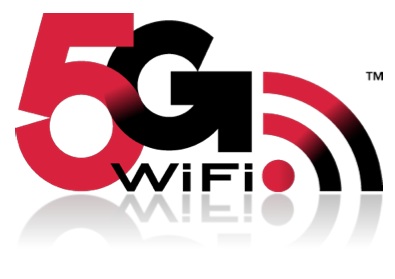No matter how fast your connection speed is, it could always stand to be faster. And the people who make it their business to see that telecommunications networks do get faster are also keenly aware, and they're apparently already at work on the next big thing. While most of the world is off enjoying their 4G and 4G LTE smartphone connections, or playing catch-up by trading in their 3G dinosaurs, the term "5G" is already being floated.

Communications chip maker Broadcom today announced a new 5G Wi-Fi Multiple Input Multiple Output (MIMO) system-on-a-chip (SoC) designed for smartphones, bringing 802.11ac connectivity with 2x2 MIMO to mobile devices.
The Broadcom BCM4354 chip marks the first implementation of 2x2 MIMO for smartphones, bringing up to twice the Wi-Fi performance with 25 percent more power efficiency than the current 1x1 MIMO chips.
Some smartphones, such as the Galaxy Note 3 from Samsung have previously incorporated 802.11ac Wi-Fi using single stream chips such as the BCM4335 from Broadcom, but the new chip uses two spatial streams for speeds up to 867 Mbps.
MIMO is a technology that uses multiple antennas for both the transmitter and the receiver to improve communication performance. Apple first adopted MIMO technology for the iPad Air and the iPad mini with Retina display.
Broadcom Announces New 5G 802.11ac Wi-Fi Chip for Smartphones - Mac Rumors

Communications chip maker Broadcom today announced a new 5G Wi-Fi Multiple Input Multiple Output (MIMO) system-on-a-chip (SoC) designed for smartphones, bringing 802.11ac connectivity with 2x2 MIMO to mobile devices.
The Broadcom BCM4354 chip marks the first implementation of 2x2 MIMO for smartphones, bringing up to twice the Wi-Fi performance with 25 percent more power efficiency than the current 1x1 MIMO chips.
Some smartphones, such as the Galaxy Note 3 from Samsung have previously incorporated 802.11ac Wi-Fi using single stream chips such as the BCM4335 from Broadcom, but the new chip uses two spatial streams for speeds up to 867 Mbps.
MIMO is a technology that uses multiple antennas for both the transmitter and the receiver to improve communication performance. Apple first adopted MIMO technology for the iPad Air and the iPad mini with Retina display.
Broadcom Announces New 5G 802.11ac Wi-Fi Chip for Smartphones - Mac Rumors
